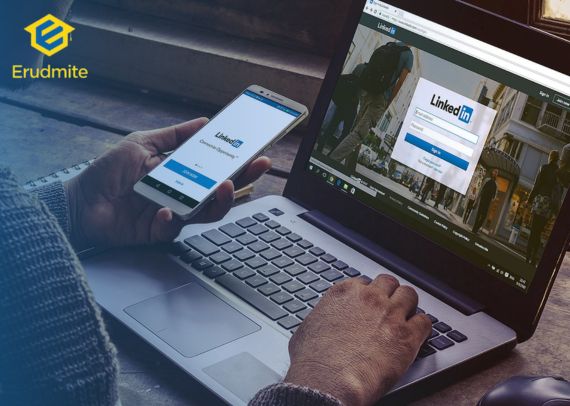
In today’s connected world, your CV isn’t the only thing recruiters check before hiring you. Employers also review your digital footprint the online trail you leave behind through social media, websites, and professional platforms. For students and graduates, especially those planning to study in UK or apply for international roles, understanding your digital footprint is crucial.
This guide explains what recruiters look for, how to clean up your online presence, and how to use it to your advantage.
What Is a Digital Footprint?
A digital footprint is the collection of information about you that exists online. It includes:
- Active footprint: Things you post or share yourself (LinkedIn updates, tweets, Instagram posts).
- Passive footprint: Information others share about you (tagged photos, mentions, blogs, online records).
Both matter in shaping your reputation.
Why Recruiters Care About It
According to surveys, more than 70% of recruiters check social media before hiring. Why?
- To verify your identity and background.
- To see if your online persona matches your CV.
- To check for red flags (offensive posts, unprofessional behaviour).
- To assess communication, creativity, and interests.
- To gauge cultural fit with their organisation.
Your online presence is like a second interview often happening without you even knowing it.
Step 1: Audit Your Digital Presence
Start by Googling yourself. What comes up on the first two pages? That’s what recruiters see. Check:
- Social media accounts.
- News mentions.
- Blogs or articles you’ve written.
- Old posts or photos you may have forgotten.
Make a list of things that help your professional image and things that might harm it.
Step 2: Clean Up Red Flags
Employers may reject candidates for negative online behaviour. Avoid leaving traces of:
- Offensive or discriminatory language.
- Excessive partying/drinking posts.
- Arguments in comment sections.
- Misinformation or fake news sharing.
- Confidential academic or workplace details.
If you can’t delete something, consider adjusting privacy settings.
Step 3: Optimise Professional Platforms
The most important platform recruiters check is LinkedIn. Ensure yours includes:
- A professional profile photo.
- Strong headline and summary.
- Updated education, skills, and experiences.
- Achievements from projects or internships.
- Endorsements and recommendations.
Other professional platforms:
- GitHub (for programmers).
- Behance/Dribbble (for designers).
- Google Scholar (for researchers).
These show your work in action.
Step 4: Use Social Media Smartly
Social platforms can actually help your job search if used wisely.
- Twitter/X: Share insights about your field, follow thought leaders.
- Instagram: Use it as a mini portfolio if you’re in creative industries.
- Facebook: Join professional groups, keep personal posts private.
- TikTok/YouTube: Build a personal brand by sharing knowledge or skills.
Tip: Consistency across platforms makes you look more credible.
Step 5: Build a Positive Digital Footprint
Don’t just clean up add value. You want recruiters to find things that work in your favour.
Ways to build a strong footprint:
- Write short LinkedIn posts about your field.
- Share your academic projects (especially if you’re aiming to study in UK or abroad).
- Start a personal blog or website.
- Engage respectfully in professional forums.
- Publish research or case studies.
The more evidence of your skills online, the stronger your professional image becomes.
Step 6: Balance Authenticity with Professionalism
You don’t need to delete your personality from the internet. Employers appreciate authenticity, but balance is key.
- It’s okay to post hobbies, travels, or interests.
- Keep personal and professional content separate if needed (different accounts).
- Think before posting would you be comfortable if a recruiter read this?
Final Thoughts
Your digital footprint is more powerful than you think. Employers and institutions see it as an extension of your CV. With a little effort, you can clean up red flags, showcase your strengths, and even make recruiters impressed before you walk into an interview. Think of it as building your professional reputation online one post at a time and with Erudmite, you get the right guidance to shape that reputation strategically.
FAQs
1. Do recruiters really reject candidates over social media?
Yes. Many recruiters admit rejecting candidates for inappropriate posts, even if their CVs were strong.
2. Should I make all accounts private?
Not necessarily. Instead, control what’s public. Having no footprint can also raise questions.
3. How can students use digital footprint to their advantage?
By showcasing academic projects, publishing articles, or sharing field-related content. It shows initiative.
4. Does my digital footprint matter for study abroad programs?
Yes. Scholarship committees, admissions officers, and even host families may check your online presence.
5. What’s the first step if my digital footprint is a mess?
Start small clean up old posts, update LinkedIn, and slowly build a positive presence.
